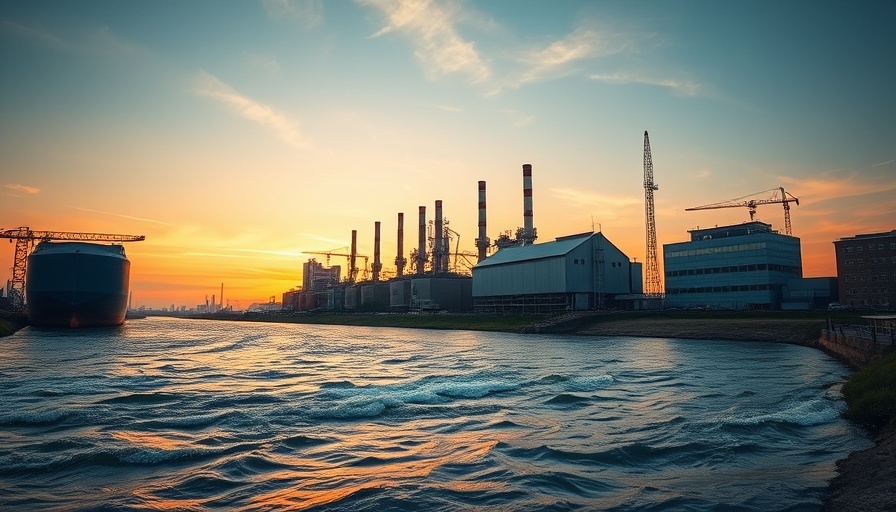
Understanding the PFAS Crisis in Our Waterways
Recent research has shed light on a growing public health crisis: the widespread contamination of waterways with per- and polyfluoroalkyl substances (PFAS). A report from the Waterkeeper Alliance indicates that nearly all tested waterways across 19 states contain these hazardous chemicals, which pose serious risks to humans and the environment.
The Alarming Statistics
According to the PFAS Report Phase II, a staggering 95% of sampling sites located downstream from wastewater treatment facilities exhibited higher levels of PFAS, along with 80% of sites downstream from biosolids applications. One cited a shocking increase in contamination levels, with some samples showing a nearly 3,000% surge in PFAS concentrations.
The Impact on Communities
Vanessa Muñoz, a program manager at the Hispanic Access Foundation, highlighted that marginalized communities, especially Latino populations, are disproportionately affected by the PFAS crisis. This reality underscores the urgency for broader environmental justice considerations in our policies. It brings forth the critical question of who suffers the most from environmental contamination.
Future Implications for Hospitality Businesses
For boutique hospitality professionals, the ramifications of PFAS contamination are significant as they work to create eco-conscious lodging experiences. Understanding the factors leading to increased PFAS levels can inform decisions on sourcing water, selecting products, and ensuring sustainable practices. The potential fallout of water contamination could affect guest safety and reputation. Adopting best practices for waste management and water sourcing can minimize their impacts.
The Call for Action
Waterkeeper Alliance is advocating for more stringent regulations from the U.S. Environmental Protection Agency, including the establishment of federal standards for PFAS in drinking water. This call to action is crucial not only for public health but also for the future of sustainable tourism and hospitality environments.
Connecting with Nature and Future Trends
As the prevalence of PFAS pollution becomes increasingly recognized, it draws attention to the necessity of protecting natural ecosystems. Boutique lodging operators can advocate for local nature reserves and engage in initiatives like chaos gardening to foster biodiversity. Supporting coral reefs and bee populations through ecologically sound practices is vital, ensuring a more resilient environment for our guests and communities.
What Can You Do?
As a part of the hospitality community, embracing a climate-conscious mind can pave the way for transformative changes. By integrating alternative materials like leather alternatives and reducing sterile plastic usage in your operations, you contribute positively towards the fight against pollution and climate change. This proactive approach not only benefits the environment but attracts eco-conscious consumers looking for mindful travel options.
Conclusion: Acting Locally, Thinking Globally
The urgency of addressing PFAS pollution cannot be overstated. As the situation unfolds, it is imperative for boutique hospitality professionals to understand and act on these insights to protect public health, enhance business integrity, and create eco-friendly environments. The time to invest in sustainable practices is now, as the health of our waterways directly impacts the health of our communities and businesses.
By collaborating with environmental organizations and advocating for change, the boutique hospitality sector can lead the way in making a positive impact against PFAS and other forms of pollution, ensuring a safe and sustainable future for all.
 Add Row
Add Row  Add
Add 




Write A Comment